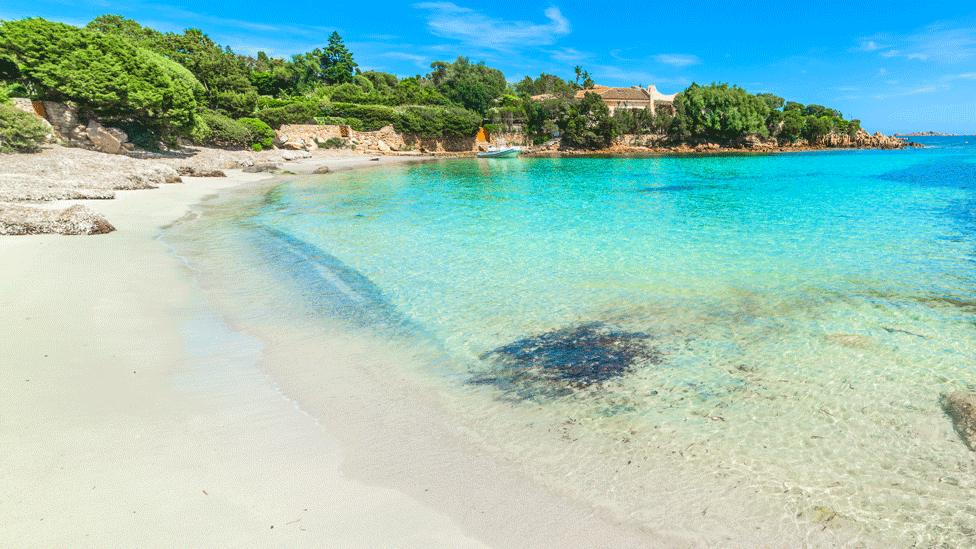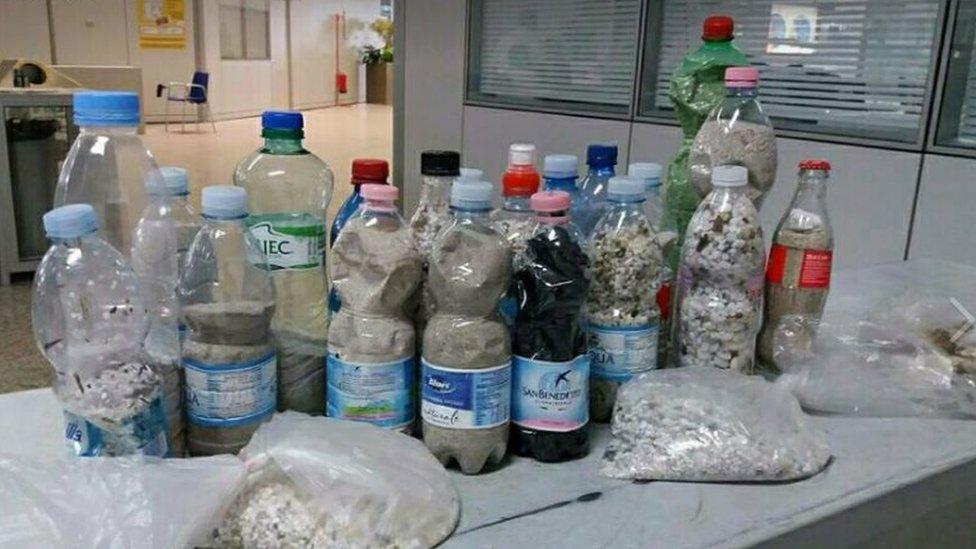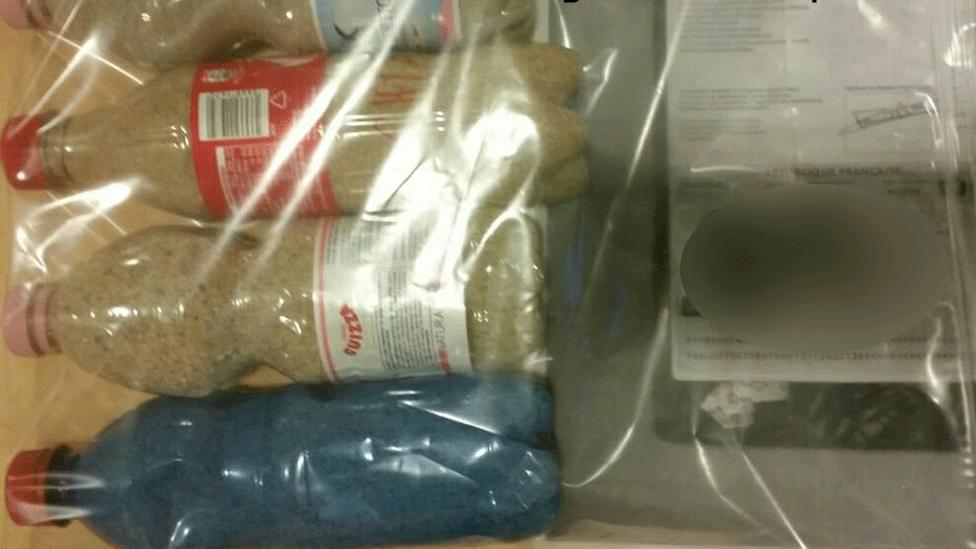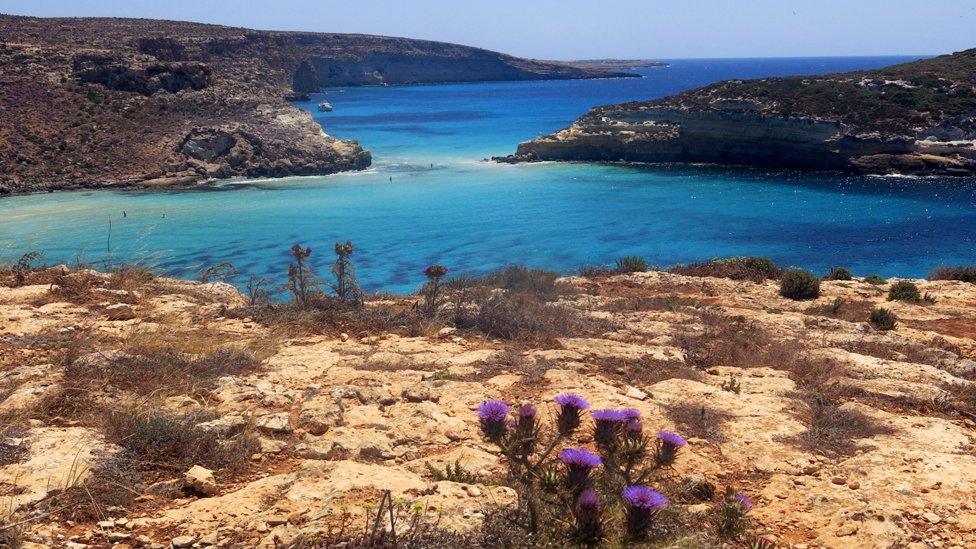Why Sardinia's tourists taking sand as souvenir face fine
- Published

Sardinia's beaches took millions of years to create but island officials fear the theft of sand could destroy the environment
Famed for its pristine beaches, the Mediterranean island of Sardinia has hit back at holidaymakers who have been pinching its sand.
Under a law that came into force on 1 August, four tourists have been given €1,000 (£920; $1180) fines while trying take sand, stones or seashells home.
They were caught by X-rays as they left Elmas airport in the capital Cagliari.
It might seem heavy-handed, but for years islanders have complained about the theft of their natural assets.
In 1994, access to the renowned pink beach on the Budelli island to the north-east of Sardinia was banned amid concerns about its future.
'Sardinia robbed and plundered'
In three summer months in 2015 alone, as much as five tonnes of sand was seized at Elmas airport, local reports say. Sand was also seized at the island's other airports in Alghero and Olbia.
A Facebook page was set up, external, called "Sardinia robbed and plundered", on which people shared pictures of plastic bottles and bags filled with beach souvenirs. Stealing sand was a crime, the group declared, pressing local mayors and politicians to respond to what they saw as an environmental emergency.

The campaign group posted images like this as an example of sand seized at one airport
Now, the law says "whoever takes, keeps or sells small quantities without permission" faces fines ranging from €500 to €3,000.
Customs officials are on the look out for stolen samples of quartz sand from beaches at Mari Ermi, Is Arutas and Maimoni, white sand from Cala Luna, or the yellow sand from Piscinas.
And local media are actively shaming tourists caught in the act. One local news website, La Nuova Sardegna, posted a video of a couple it described as "probably foreigners", apparently filling a bottle with white sand from the beach at Arutas on the west coast, "possibly as a souvenir of beautiful Sardinia".

This sand was seized from a Frenchwoman leaving Elmas airport in early August
The anti-theft activists believe they still have considerable work to do to tackle the thefts and have posted photos of Sardinian sand being sold on eBay.
The island's forestry corps says Sardinia's beaches were created over millions of years. "Taking away a little bottle may not seem a big deal. But if all the millions of tourists did it, tonnes and tonnes would disappear every year," they say.
- Published13 February 2016
